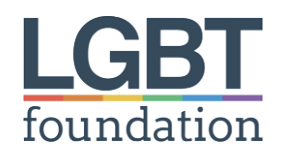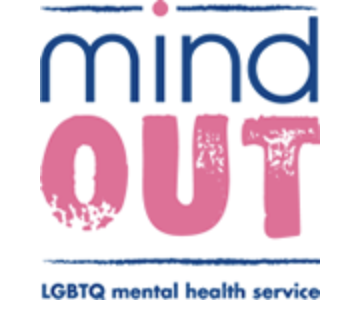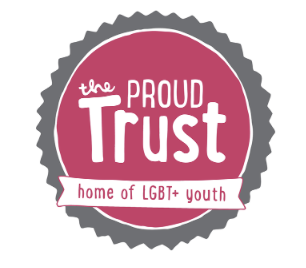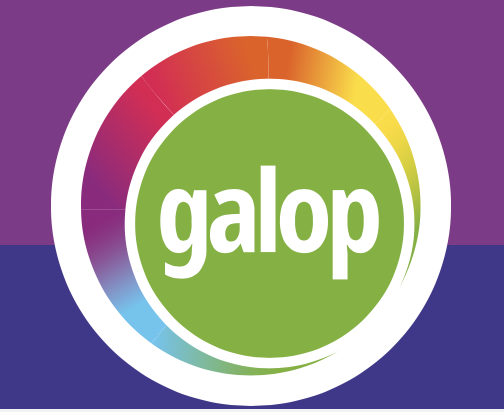Gender Identity
When people think of gender, they often think about body parts, clothes or how a person looks and acts. We also have a gender identity. This is the gender that we identify with, the gender that we know ourselves to be. It is part of our internal sense of self. This can be different to the ‘sex’ you were given at birth.
You can’t tell another person’s gender just by looking at them. The only person who can really know your gender is you.
Everyone is unique and has their own style and presentation. This is called gender expression. You don’t have to fit a stereotype of what you think a man or a woman should look like.
Your gender identity is about who you are and your sense of self. Your sexuality or sexual orientation is about who you are attracted to.
Watch this video from The Proud Trust in which young people talk about identity, coming out, language and school.
Gender Dysphoria
When you are born, it’s decided whether you’re a boy or a girl, based on the way your body looks.
Gender dysphoria is the uncomfortable feeling some people get when their gender is different from the one they were given at birth.
No matter how someone’s body looks, they might identify as male, female or non binary.
Non binary people may identify with no gender at all or with more than one gender.
If your gender identity matches the one you were given at birth that’s called cisgender.
Words used to describe gender identity
The Proud Trust have put together some of the words people may use to describe their gender identity. You should not feel under any pressure to assign yourself a 'label'.
Bigender: A person who feels they have two gender identities. This could be at the same time or at different times.
Cis or Cisgender: A person whose gender is the same as they were given at birth.
Demigender: An umbrella term for non binary identities that have a partial connection to a certain gender. Demiboy: A gender identity that is both male and genderless. Demigirl: A gender identity that is both female and genderless.
Gender Fluid: A person who feels that their gender is not static and that it changes throughout their life. This could be on a daily, weekly or monthly basis.
Gender neutral or Agender: A person who does not identify with any gender.
Non binary: An umbrella term for gender identities which are not confined by the gender binary of 'woman' and 'man'. Non binary people may identify with no gender at all or with more than one gender.
Polygender: A person that has several gender identities. This can mean they have them at the same time, or that they often switch between them at different times.
Queer: Some people use it as a collective term for LGBT+ people. Some use it to explain their gender, sexual or political identity. Some people still use this word as an insult and this is not okay.
Questioning: A person who is uncertain about or exploring their own sexual orientation or gender identity.
Trans or Transgender: A person whose gender identity is in some way different to the gender they were assigned at birth.
Pronouns
Pronouns are words used to refer to someone when their name isn’t being used. Traditionally pronouns include words like he/him, she/her or they/them. They usually suggest a person’s gender. Some people prefer to use neutral pronouns such as they or them.
What is your pronoun? You have the right to be called by the pronoun you feel most comfortable with.
You should ask others what their pronouns are and not assume.
Local resources
West Yorkshire Healthier Together LGBTQ+ support services page has information on local LGBT+ youth groups and support.
Dealing with your gender can sometimes be a stressful experience. There are West Yorkshire Healthier Together pages with information about depression, anxiety, self help and local mental health services.
National Resources
 LGBT Foundation is a national charity delivering advice, support and information services to lesbian, gay, bisexual and trans (LGBT) communities. They have information on sexual health and sex guides.
LGBT Foundation is a national charity delivering advice, support and information services to lesbian, gay, bisexual and trans (LGBT) communities. They have information on sexual health and sex guides.
 MindOut is a mental health service run by and for LGBTQ+ people. Their online support is available for all.
MindOut is a mental health service run by and for LGBTQ+ people. Their online support is available for all.
 The Proud Trust is an LGBT+ organisation that supports LGBT+ young people through youth groups, peer support, mentoring programs and the Proud Connections chat service.
The Proud Trust is an LGBT+ organisation that supports LGBT+ young people through youth groups, peer support, mentoring programs and the Proud Connections chat service.
 Gendered Intelligence works to increase understanding of gender diversity and improve the lives of trans people. They offer online groups and in person youth groups in Leeds. They also offer 1 to 1 support.
Gendered Intelligence works to increase understanding of gender diversity and improve the lives of trans people. They offer online groups and in person youth groups in Leeds. They also offer 1 to 1 support.
 Galop supports LGBT+ people who have experienced abuse and violence.
Galop supports LGBT+ people who have experienced abuse and violence.



